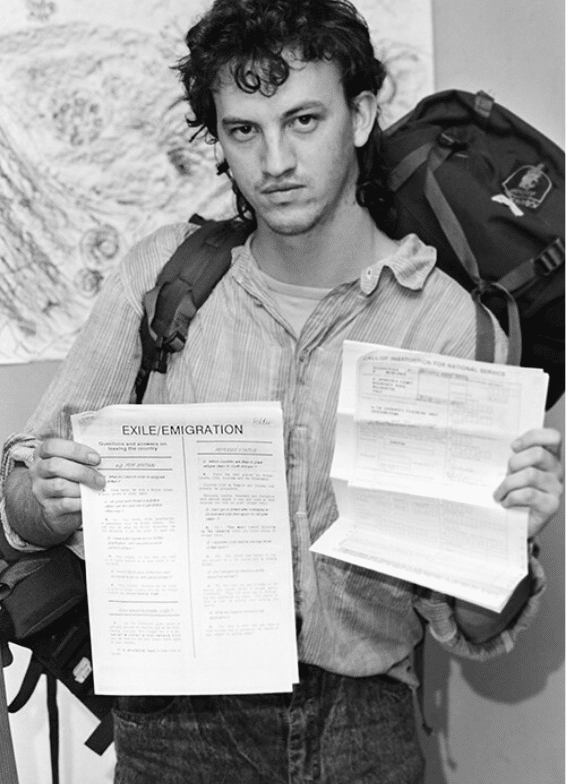Insight from Paul Meersman, Global Head of Marketing & Communications at Triton Hydrogen
Paul Meersman is a gifted Storyteller, writer, and Thought-Leader. Throughout his career, from senior leader to a leading AI Engineer, Photographer and Filmmaker, one aspect has always remained constant. Paul’s determination to stay true to his core values and incorporate frameworks, which enable objective and data-led decision making, has been the meticulous guide to the decisions that he has taken, not just in his career but throughout his life.
In this powerful and insightful piece, Paul provides us with snapshot of one of his most pivotal life decisions, and the sixteen key lessons that he applied.
As project managers, practitioners and leaders dealing with tough decisions each day these lessons may help provide you with clarity, in an often intense and noisy project world.
How a leader makes tough decisions

Our choices both reveal and shape who we are. Throughout my life, I’ve faced tough decisions, always guided by my moral principles and values, even when it meant going against the advice of others.
As a young man in 1988, I took one of the toughest decisions of my life. I stood up to the apartheid government in South Africa, which resulted in me having to flee as a refugee, leaving everything behind.
My friend and fellow photojournalist, TJ Lemon, took this image shortly before I was forced to flee from South Africa. Photograph by TJ Lemon.
We all face difficult decisions and choices in our lives. I hope sharing what I’ve learnt about making choices and leadership can help you too.
Dealing with the complexity of decisions
The most challenging decisions are never straightforward. They’re difficult because there isn’t a perfect and easy answer. You’re always dealing with probabilities. The only way to approach difficult decisions is to use a sound decision-making process rather than relying on gut instincts or seeking perfection.
Value of process
Establishing a rigorous process, including listening to experts, weighing facts against your principles and values, researching, and soliciting diverse opinions, is crucial for making informed decisions.
Understanding your core values
Before making any decision, it’s essential to understand your core values. Take time to reflect on what truly matters to you, as these values will serve as your compass in navigating difficult choices.
Seeking diverse perspectives
Actively seek out perspectives that differ from your own. Engaging with a diverse group of advisors or team members can uncover blind spots and lead to more comprehensive decision-making.
Importance of dissent
Encouraging contrarian views from team members and advisors helps prevent groupthink and fosters more robust decision-making.
Prioritizing long-term impact
Consider the long-term consequences of your decisions, not just the immediate outcomes. Effective leaders think beyond the present moment and assess how their choices will impact the future.
Learning from Past Decisions
Reflect on past decisions and their outcomes. This reflection can provide valuable insights and help you identify patterns in your decision-making process, allowing you to improve over time.
Building resilience
Difficult decisions often come with risks and challenges. Building resilience enables you to handle setbacks and remain steadfast in your choices, even when the path ahead is uncertain. I’ve written about building resilience here.
Practicing patience
Not all decisions need to be made immediately. Practicing patience and allowing time for additional information to emerge can lead to more informed and thoughtful choices.
Assessing the risks
Evaluate the risks associated with each option. Weigh the potential downsides against the benefits to make decisions that are not only bold but also calculated and measured.
The need for reflection
Taking breaks and allowing time for thoughts to marinate, even in high-pressure situations, can lead to clearer and more refined decisions.
Balancing work and life
Maintaining personal rituals and spending time with family and friends helps preserve your sense of self, ensuring decisions are grounded in your core values.
Humanity and integrity
Decisions should embody the fundamental principles of humanity and decency, even in the face of criticism. Do what is right and don’t succumb to external pressures.
Embracing uncertainty
While outcomes can’t always be guaranteed, confidence comes from knowing you have followed a thorough process. You can look back with the knowledge that you did everything in your power to make the right decision at the time.
Communicating your decisions
Once a decision is made, clearly communicate it to those affected. Transparency and openness in communication help build trust and ensure that everyone understands the reasoning behind the decision.
A framework for decisions
In everyday life having a framework to guide decisions such as the outline above, accepting the world’s complexity, and doing the best within the given circumstances is crucial.
Paul Meersman is the Global Head of Marketing and Communications at Triton Hydrogen.
Originally from Cape Town, South Africa, Paul was forced into exile by the apartheid regime for his refusal to comply with its oppressive policies. Recognised as a refugee by the United Nations, he later settled in Belgium, where he acquired Belgian nationality. In 1996, he moved to the UK.
Beginning his career in photojournalism, photography has remained a lifelong passion for Paul, with his work exhibited internationally and featured in numerous publications.
Paul is known for his critical thinking, creativity, and complex problem-solving—skills that fuel innovation and achieve impactful results. He approaches every project with a unique blend of analytical insight and creative flair, whether navigating intricate challenges or developing visionary solutions. His career includes extensive experience at a leading digital communications agency in the UK, where he drove transformative results, forged meaningful engagement, and consistently aligned strategies with the needs of end users. He describes himself as a storyteller who combines creativity and science to craft compelling narratives.
You can reach Paul via LinkedIn Here








